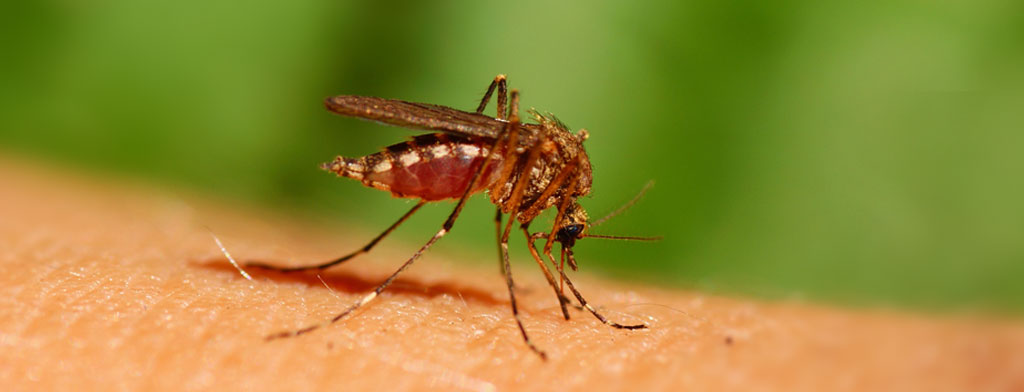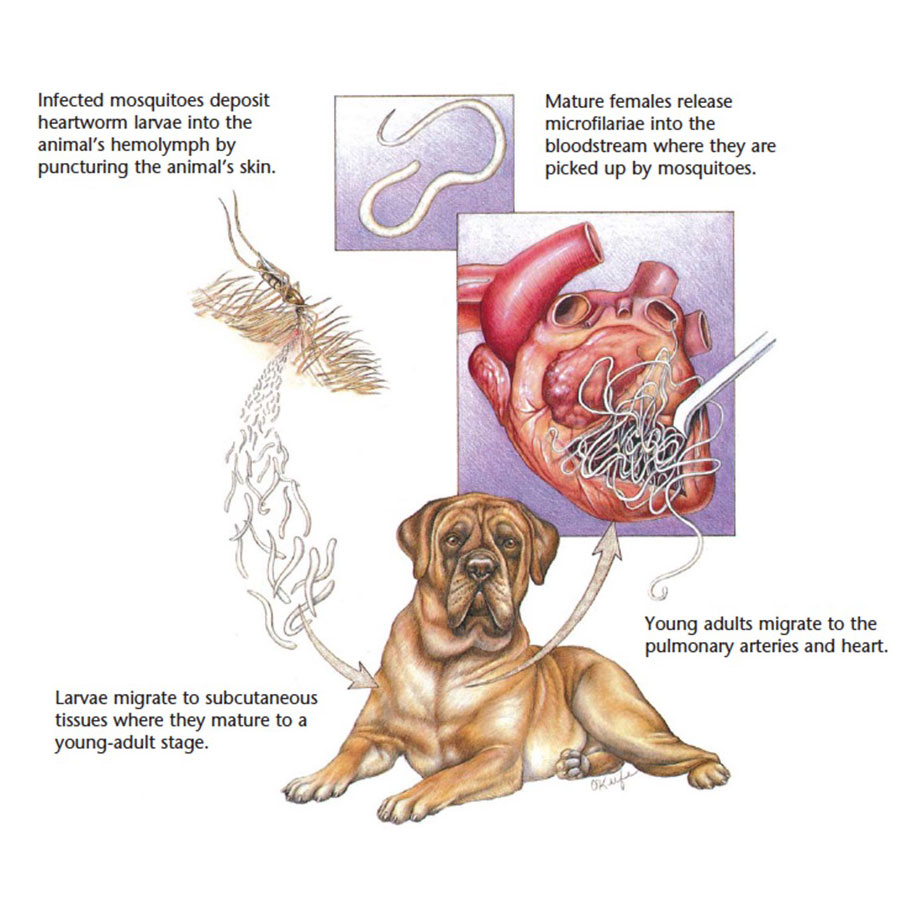Updated: November 2020
Originally Published: November 2018

Wherever there are mozzies, there is the risk of heartworm infection in our pets. We’ve seen an increase in heartworm infections in recent years and with long periods of rainfall and resulting flooding, the Australian Veterinary Association is concerned about even further increases. From January to July 2020, 15 cases were confirmed in Sydney!
Here at Cronulla Veterinary Clinic, we can protect your furry family member against the dreaded heartworm disease and other parasite infections.
What is heartworm?

Heartworms are long worms (up to 30 cm long!), living in the heart and large blood vessels around the heart. They live in mosquitoes as larvae, and when the mozzie feeds on our dog or cat, it injects the larvae under the skin. The larvae then track through the tissues to the heart, where they mature into adult larvae. Adult worms mate and produce larval offspring, called “microfilariae”. The microfilariae circulate in the bloodstream of the infected pet. And then the whole ghastly cycle starts all over again…. Mosquitoes biting an infected animal ingest the microfilariae, these mature inside the mozzie, and are injected into a new pet as the mozzie feeds again.
Symptoms of Heartworm Disease
As heartworms damage the heart, lungs and blood vessels around the heart, common signs can include:
- Coughing
- Inability to exercise as usual
- Weight loss
- Listlessness
- Laboured breathing
Heartworm infection isn’t as common in cats as it is in dogs, although cases are also on the increase. Heartworm disease can be more difficult to diagnose in cats if the larvae do manage to develop into adult worms, and the treatment has more risk of complications. Heartworm disease can be deadly, especially for cats!

Some important heartworm facts:
Prevention needs to be given all year round, because infection by mosquitoes is possible all year round, not just in the warmer months. This is true even for pets who don’t go outside or socialise with other animals.
Shockingly, over 40 % of the patients diagnosed with heartworm disease in recent years were on monthly heartworm prevention! This means they somehow didn’t get all their heartworm prevention doses, possibly due to the pet not taking the tablet or chewable properly, or vomiting it up, or the medication not being given on time. The best standard of care is a 12-month preventative injection and yearly testing for heartworm.
Wildlife, such as foxes, and stray/feral animals are susceptible to heartworm as well, so even in a perfect world where all our pets are on constant prevention, we never lose the sources of the infection completely.
At Cronulla Veterinary Clinic, we can take the worry out of remembering to dose your pet monthly for protection against this potentially deadly disease, by offering a yearly slow-release heartworm injection and reminder system. Remember to ask us about our special “Paw Club Care” programme for a more affordable way to parasite treat your furry child☺
